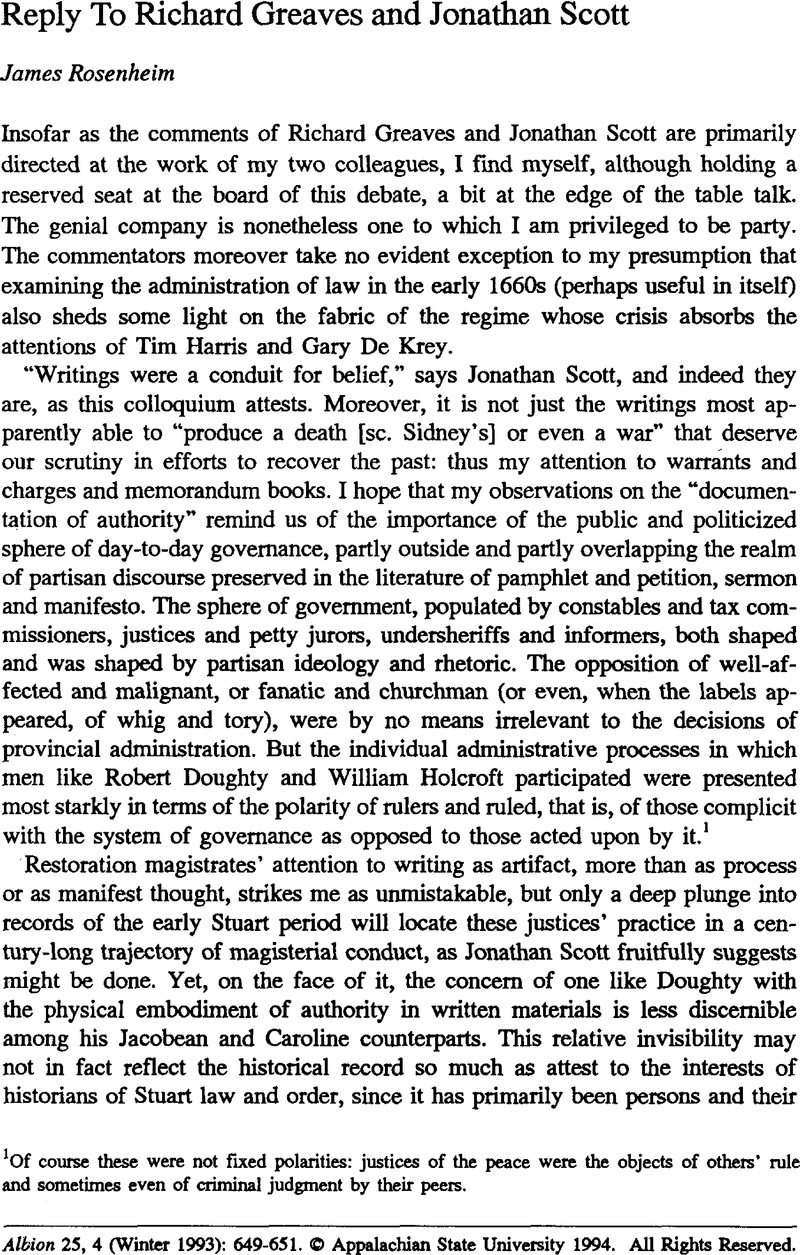No CrossRef data available.
Article contents
Reply To Richard Greaves and Jonathan Scott
Published online by Cambridge University Press: 11 July 2014
Abstract

- Type
- Order and Authority: Creating Party in Restoration England
- Information
- Copyright
- Copyright © North American Conference on British Studies 1993
References
1 Of course these were not fixed polarities: justices of the peace were the objects of others' rule and sometimes even of criminal judgment by their peers.
2 See the works cited above, p. 592, n. 2 and also McIntosh, Marjorie K., A Community Transformed: The Manor and Liberty of Havering, 1500–1620 (Cambridge, 1991), chs. 5–6CrossRefGoogle Scholar.
3 Fletcher, Anthony, Reform in the Provinces: The Government of Stuart England (New Haven, 1986), pp. 137–38Google Scholar.
4 Roberts, S., Recovery and Restoration in an English County: Devon Local Administration 1646–1670 (Exeter, 1985), pp. 33–35Google Scholar.
5 Ibid., p. 146.
6 Ibid., pp. 186, 189; quotation at p. 190.
7 Fletcher, Reform in the Provinces, ch. 4; Forster, G. C. F., “Government in Provincial England Under the Later Stuarts,” Transactions of the Royal Historical Society, 5th series, 33 (1983): 37–38CrossRefGoogle Scholar; Rosenheim, J. M., “County governance and elite withdrawal in Norfolk, 1660–1720,” in Beier, A. L., Cannadine, David, and Rosenheim, James M., eds., The First Modern Society: Essays in English History in Honour of Lawrence Stone (Cambridge, 1989), pp. 119–22Google Scholar.
8 Goody, Jack, The Logic of Writing and the Organization of Society (Cambridge, 1986), p. 124CrossRefGoogle Scholar.


